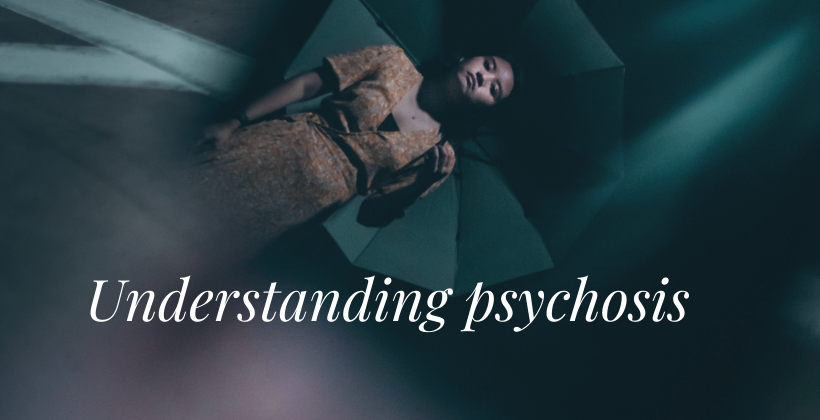The conditions that affect the mind are described as psychosis, where there has been some loss of contact with reality. When someone becomes ill in this way it is called a psychotic episode.
During a period of psychosis, a person’s thoughts and perceptions are disturbed and the individual may have difficulty understanding what is real and what is not. Symptoms of psychosis include delusions (false beliefs) and hallucinations (seeing or hearing things that others do not see or hear).
Other symptoms include incoherent or nonsense speech, and behavior that is inappropriate for the situation. A person in a psychotic episode may also experience depression, anxiety, sleep problems, social withdrawal, lack of motivation, and difficulty functioning overall.
Symptoms of Psychosis
What is worth noticing is that psychosis doesn’t suddenly start. It usually follows this pattern:
- Warning signs before psychosis: It starts with gradual changes in the way you think about and understands the world. You or your family members may notice:
- A drop in grades or job performance
- Trouble thinking clearly or concentrating
- Suspiciousness or unease around others
- Lack of self-care or hygiene
- Spending more time alone than usual
- Stronger emotions than situations call for
- No emotions at all
- Signs of early psychosis: You may:
- Hear, see, or taste things others don’t
- Hang on to unusual beliefs or thoughts no matter what others say
- Pull away from family and friends
- Stop taking care of yourself
- Not be able to think clearly or pay attention
- Symptoms of a psychotic episode: Usually you’ll notice all of the above plus:
- Hallucinations:
- Auditory hallucinations: Hearing voices when no one is around
- Tactile hallucinations: Strange sensations or feelings you can’t explain
- Visual hallucinations: You see people or things that aren’t there, or you think the shape of things looks wrong
- Delusions: Beliefs that aren’t in line with your culture and that don’t make sense to others, like:
- Outside forces are in control of your feelings and actions
- Small events or comments have huge meaning
- You have special powers, are on a special mission, or actually are a god
- Hallucinations:
Causes of Psychosis
Doctors don’t know exactly what causes psychosis, but some known risk factors include:
- Genetics: You can have the genes for it, but that doesn’t always mean you’ll get psychosis.
- Drugs: Triggers include some prescription medications and abuse of alcohol or drugs like marijuana, LSD, and amphetamines.
- Trauma: The death of a loved one, a sexual assault, or war can lead to psychosis. The type of trauma and the age you were when it happened also play a role.
- Injuries and illnesses: Traumatic brain injuries, brain tumours, strokes, Parkinson’s disease, Alzheimer’s disease, dementia, and HIV can all bring on psychosis.
Psychosis can also be a symptom of a mental illness, like schizophrenia, bipolar disorder or severe depression.
Medical Treatment for Psychosis
It’s important to get treated early, after the first episode of psychosis. That will help keep the symptoms from affecting your relationships, work, or school. It may also help you avoid more problems down the road.
Your doctor may recommend coordinated specialty care (CSC). This is a team approach to treating schizophrenia when the first symptoms appear. It combines medicine and therapy with social services and work and education support. The family is involved as much as possible.
What your doctor recommends will depend on the cause and case, as this is very individual.
Your doctor will prescribe antipsychotic drugs — in pills, liquids, or shots — to ease your symptoms. They’ll also suggest you avoid using drugs and alcohol.
However, you might need to get treated in a hospital if you’re at risk of harming yourself or others, or if you can’t control your behavior or do your daily activities. But, the doctor will check your symptoms, look for causes, and suggest the best treatment for you.
Conclusion
So to conclude, psychosis is a common mental illness that can affect anyone.
Moreover, someone is experiencing psychosis, they will see things or interpret things differently from other people around them. Although, this can include delusions or hallucinations, and it might be difficult to tell what is real and what’s not.
https://www2.hse.ie/conditions/mental-health/psychosis/psychosis-symptoms.html

